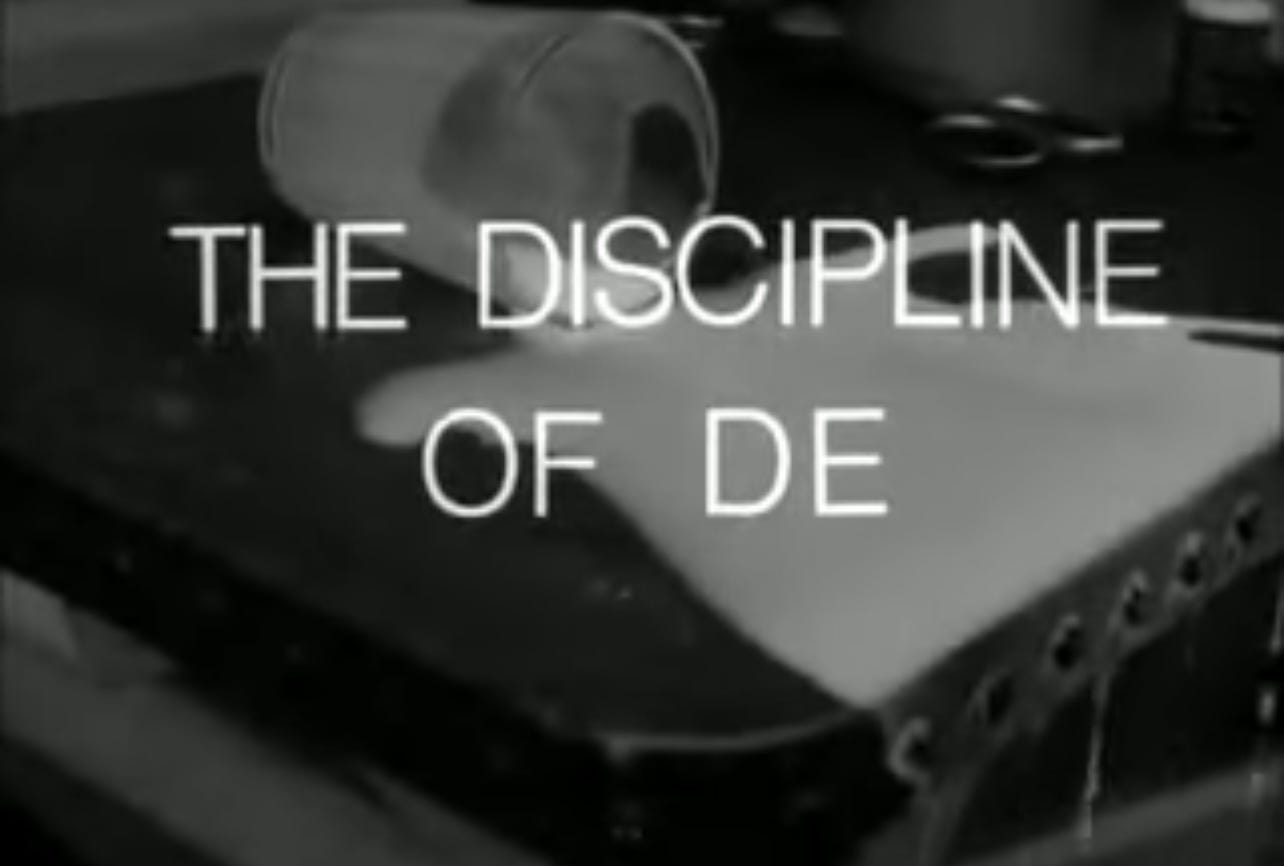Do Easy
I linked a video above; it is one I revisit often. It was suggested to me by a mutual on Twitter when I was describing how I develop little systems for doing those activities and tasks of daily living that are immovable. Those activities that contribute to our mental and physical wellbeing that set a pattern and are commonplace. The system allows me to do the thing with ease so that I am free from thinking too deeply about it and from developing contempt at having to do it. This method is described as Do Easy or DE.
“DE is a way of doing. It is a way of doing everything you do. DE simply means doing whatever you do in the easiest most relaxed way you can manage which is also the quickest and most efficient way, as you will find as you advance in DE.” The concept of Do Easy was described in an essay by William S. Burroughs. Burroughs was a controversial character, inveterate opiate addict, murderer, founding member of the Beat Generation and an avid practicing occultist. Burroughs was a follower of chaos magic. Chaos magic which was conceptualized by Austin Osman Spare in the 1900s instructs that the essence of magic is that perceptions are conditioned by beliefs, and perception can be altered by changing ones beliefs. Chaos magicians use belief as a tool, often creating their own distinct magical systems that incorporate ideas from popular culture, philosophy and other religious and occult traditions. I found this interesting as the video narrating Burroughs essay on DE translates as instructions to ritualize even the most mundane activities like washing a dish. Around 1977 the first chaos magic organization was formed, and it emerged as “one of the first postmodern manifestations of occultism", built on the rejection of a need to adhere to a "single, systematized convention”, and aimed at distilling magical practices down to a result-oriented approach rather than following specific practices based on tradition.” You can see this approach distilled in Burroughs concept of Do Easy.
Even the commonplace things we must do should be done competently, with devotion and ease. It is known that ritualization reduces anxiety as it furnishes rules that counteract ambiguity. Counterbalancing uncertainty brought on by turmoil in the world with rituals is the groundwork for most of the religious organizations on earth. Neuroscientists have also found that rituals can perform like an endogenous anxiolytic. One of our brains primary functions is to make predictions about the future based on pattern recognition and adjust our actions accordingly. Making accurate predictions disseminates feelings of safety.
We can make sense of the world by forming systems that support doing those middling tasks with ease. Forming a ritual or system allows one to be fully aware while carrying out the humdrum tasks like washing a dish or changing the sheets, activities that are a means to an end but however require our time and close attention. Doing things with ease and well leaves one with more time to devote to leisurely pursuits with the added comfort of not having a thousand loose ends haunting you.
Find ways to maximize your efficiency…….
“If everyone is to be made responsible for everything they do, you must extend responsibility beyond the level of conscious intention.” William S. Burroughs

